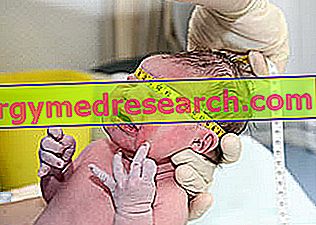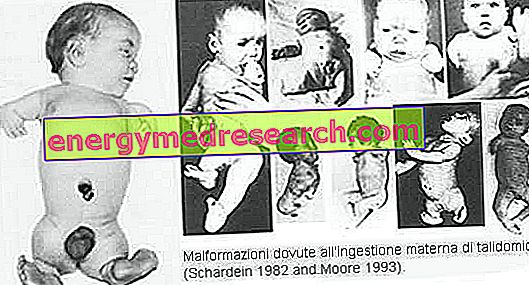Generality Pfeiffer syndrome is a rare genetic disorder characterized by craniosynostosis and the presence of large thumbs and big toes abnormally deviated inwards. Observable in one newborn per 100, 000, Pfeiffer syndrome is associated with the mutation of the FGFR1 and FGFR2 genes; both these genes have the task of regulating the fusion of the cranial sutures and the development of the fingers and toes
Category genetic diseases
Generality Muscular dystrophies are genetic diseases, very often also hereditary, that weaken the muscles and reduce the motor skills of affected people. These are progressive and debilitating diseases, which therefore tend to worsen over time, to the point of creating persistent difficulties in carrying out daily activities, even the simplest ones
Generality Duchenne muscular dystrophy ( DMD ) is a genetic disorder, sometimes inherited, that affects the muscles. Patients lose muscle tone due to the absence of a fundamental protein: dystrophin . In a few years, the involvement of the muscles is total, so much so that the sick are forced into a wheelchair and assisted breathing
The various types of muscular dystrophy are distinguished from each other by the anatomical area where the first symptoms appear and the severity of the related disorders. Therefore, it is true that the muscular dystrophies weaken the muscular apparatus, but it is also true that not all of them are equally serious and with lethal consequences
Generality The phocomelia is a very rare congenital disease, which induces the appearance of anatomical abnormalities at the level of: upper limbs, lower limbs, head, face, internal organs and so on. It may be the result of a genetic mutation affecting chromosome 8, inherited from the parents (hereditary phocomelia), or the consequence of improper assumption by the mother during pregnancy of some drugs such as thalidomide or accutane (phocomelia iatrogenic)
Generality Angelman syndrome is a rare genetic neurological disease caused by a mutation of the maternal chromosome 15. It manifests itself with severe intellectual, behavioral and motor deficits; the patient shows the first symptoms already in early childhood, but the parents are not always able to notice it immediately
Generality Alport syndrome is a rare hereditary genetic disorder that causes progressive loss of renal function, hearing loss and eye anomalies. The cause of Alport syndrome is the mutation of genes involved in the production of a protein essential for the proper functioning of the kidneys, inner ear and eyes
Generality Crouzon syndrome is a rare genetic disorder that determines the presence of craniosynostosis and other rather unusual facial anomalies. The causes of its appearance are certain alterations of the DNA that constitutes the FGFR2 and FGFR3 genes; these genetic elements are involved in the process of bone maturation during embryonic development
Generality Noonan syndrome is a rare, sometimes hereditary, genetic disorder that alters the normal development of different anatomical parts of the body. Unusual facial features, short stature and some congenital heart defects are the main pathological and diagnostic signs. Therapy consists of controlling and limiting symptoms, as Noonan syndrome is not curable
Generality Prader-Willi syndrome is a rare genetic disorder that causes physical, behavioral and intellectual abnormalities. The most characteristic clinical signs are obesity (and the related diseases) and reduced muscle tone. Known since 1956, Prader-Willi syndrome is due to a mutation of chromosome 15, but it is not yet clear which genes are exactly involved
Generality Ehlers Syndrome Danlos is the medical name of a grouping of 13 genetic diseases of connective tissue, which mainly cause problems to the skin, joints and blood vessels. 12 genes are certainly involved in the onset of the different variants of Ehlers Danlos syndrome, whose task, under normal conditions, is to produce a functional collagen











